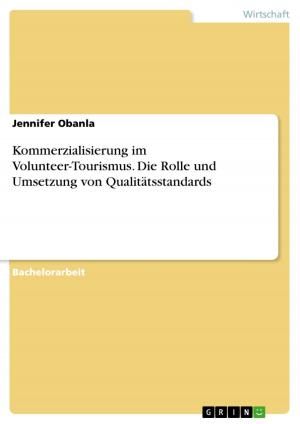Geopolitics in the Taiwan Strait
Nonfiction, Social & Cultural Studies, Political Science, International, International Relations| Author: | Karl Lemberg | ISBN: | 9783638431897 |
| Publisher: | GRIN Verlag | Publication: | October 25, 2005 |
| Imprint: | GRIN Verlag | Language: | English |
| Author: | Karl Lemberg |
| ISBN: | 9783638431897 |
| Publisher: | GRIN Verlag |
| Publication: | October 25, 2005 |
| Imprint: | GRIN Verlag |
| Language: | English |
Seminar paper from the year 2004 in the subject Politics - International Politics - Region: Far East, grade: 1,3, University of Potsdam, course: Security Studies, 13 entries in the bibliography, language: English, abstract: After the end of the Cold War the Taiwan Strait is one of the remaining global 'hot spots'. In fact, the Taiwan Strait 'remains the locus of one of the most dangerous military confrontations in the world', a fact that was underlined through the showdown during 1996 missile crisis when the U.S. send two carrier battle groups into the region in order to deter a hawkish mainland Chinese towards the Republic of China, Taiwan. As we have evaluated during the seminar, the strategic focus of the United States has since the end of the Cold War clearly shifted from Europe to Asia (Brezinski: Die einzige Weltmacht, 1997). I have chosen to look more closely at the geopolitics of the Taiwanese-Chinese conflict theater and especially the involvement of another regional hegemon in East Asia, the United States of America. For 30 years (1949-1979) the United States was Taiwan's principal patron tied in a mutual defense treaty that secured the tiny island republic's stand against the highly populated communist mainland and emerging economic powerhouse. In 1979 the U.S. officially recognizes the People's Republic of China which terminated official relations to Taipei and the mutual defense treaty. Yet, the same year, U.S. Congress' Taiwan Relation Act ties Taiwan's defense concerns close to American interest again. From then on, Washington is balancing its responsibility and security concerns for ROC on the one side and an interest in closer and stabilized relations with PRC. The Taiwan question - reunification, independence or status quo - bears not only geopolitical ramifications, but also has a cultural, economical, and political dimension. Yet, I will try to strap down this question to the military aspects of geopolitics.
Seminar paper from the year 2004 in the subject Politics - International Politics - Region: Far East, grade: 1,3, University of Potsdam, course: Security Studies, 13 entries in the bibliography, language: English, abstract: After the end of the Cold War the Taiwan Strait is one of the remaining global 'hot spots'. In fact, the Taiwan Strait 'remains the locus of one of the most dangerous military confrontations in the world', a fact that was underlined through the showdown during 1996 missile crisis when the U.S. send two carrier battle groups into the region in order to deter a hawkish mainland Chinese towards the Republic of China, Taiwan. As we have evaluated during the seminar, the strategic focus of the United States has since the end of the Cold War clearly shifted from Europe to Asia (Brezinski: Die einzige Weltmacht, 1997). I have chosen to look more closely at the geopolitics of the Taiwanese-Chinese conflict theater and especially the involvement of another regional hegemon in East Asia, the United States of America. For 30 years (1949-1979) the United States was Taiwan's principal patron tied in a mutual defense treaty that secured the tiny island republic's stand against the highly populated communist mainland and emerging economic powerhouse. In 1979 the U.S. officially recognizes the People's Republic of China which terminated official relations to Taipei and the mutual defense treaty. Yet, the same year, U.S. Congress' Taiwan Relation Act ties Taiwan's defense concerns close to American interest again. From then on, Washington is balancing its responsibility and security concerns for ROC on the one side and an interest in closer and stabilized relations with PRC. The Taiwan question - reunification, independence or status quo - bears not only geopolitical ramifications, but also has a cultural, economical, and political dimension. Yet, I will try to strap down this question to the military aspects of geopolitics.















